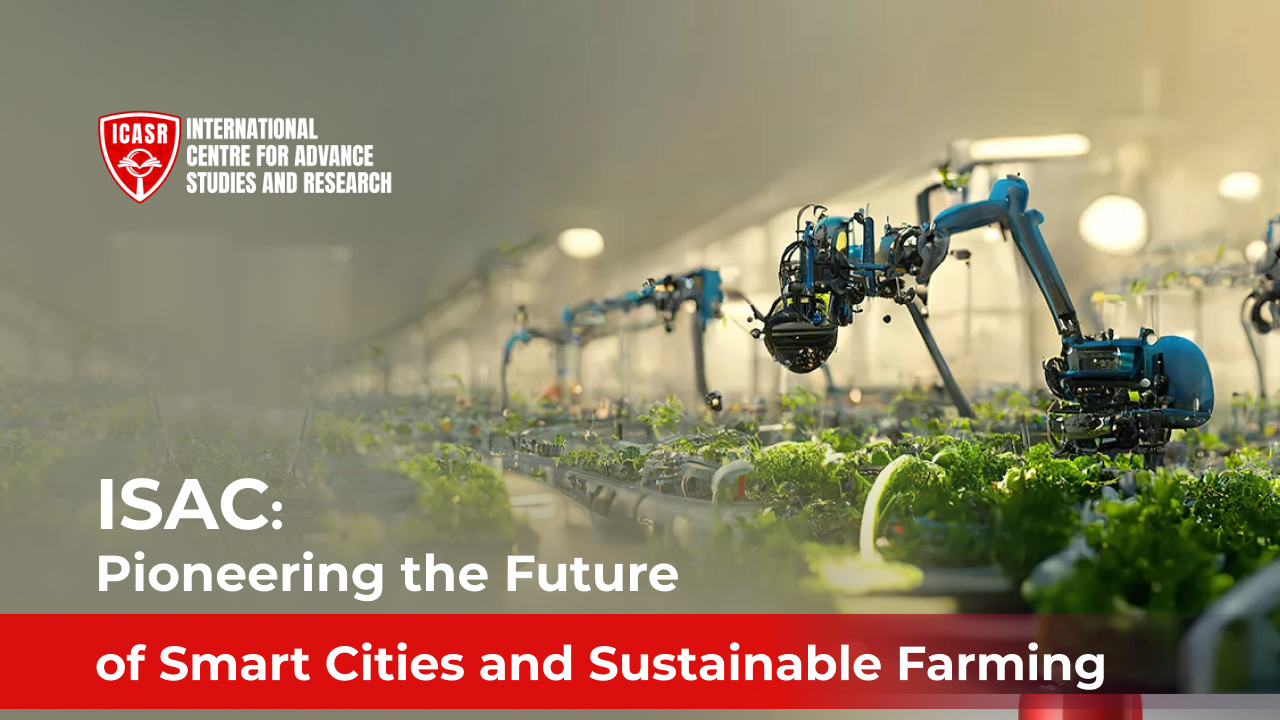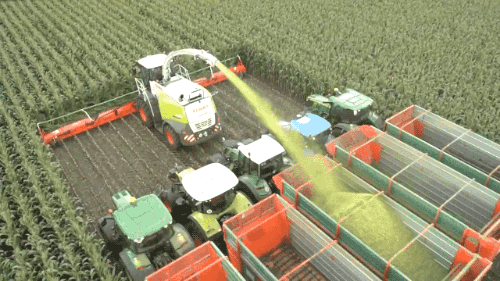
Technology has come together with environmental sustainability giving rise to innovative solutions that address worldwide problems. Just like, ISAC (Innovative Solution for Advanced Communities) is one of the entities at the forefront of this revolution. They use machine learning, artificial intelligence, cloud computing and IoT devices which result in transforming the cityscape through ISAC's input into an urban territory and agricultural assistance leading to a sustainable future.
ISAC and Smart Cities:
The intelligent use of resources, improved living conditions, and sustainable development - all the features of smart cities- are significantly gaining popularity across the globe. Through the deployment of intelligence infrastructure and data-driven decision-making, ISAC is playing a key role in making this vision come true.
- Urban Data Management and Analysis: Advanced data analytics and machine learning algorithms are used by ISAC to process vast amounts of information generated by sensors and smart devices installed around the city. For example, the information obtained includes traffic patterns, air quality, energy consumption levels and public transportation usage. Analyzing these patterns helps ISAC identify inefficiencies and optimize resource allocation while at the same time improving services to citizens. In one project, for instance, ISAC was able to reduce traffic jams by 20% through intelligent traffic light coordination as well as real-time traffic updates sent out to commuters.
- Intelligent Transportation Systems: The intelligent Transportation System in ISAC relies on the application of artificial intelligence in optimizing traffic flow, and minimizing travel time and air pollution. Often real-time traffic and predictive analytics enable dynamic adjustment of traffic signal controls, public transport routes and availability of parking lots. In certain smart cities for instance one could find that a smart parking system parking system implemented by ISAC has cut search time for empty space by 35%.
- Smart Grid Management: The importance of efficient energy management to sustainable cities cannot be overstated. ISAC's smart grid solutions utilize renewable energy sources, battery storage technologies and demand response programs. Through machine learning algorithms, ISAC can optimize the distribution of power, mitigate peak loads and enhance reliability in grid operations. One of the studies cited showed that the implementation of ISAC's smart grid operations led to a 15% decrease in electricity consumption.
- Community Safety and Security: Advanced Systems and Data Analytics by ISAC will lead to improved public safety (e.g., crime prevention). Integrating video analytics with sensor data, ISAC is capable of detecting anomalies, forecasting possible dangers and enhancing emergency response efficiency.
- Gen AI and Citizens' Participation: Generating Artificial Intelligence (Gen AI) is being utilized by ISAC to improve public relations and service delivery. Chatbots powered by Gen AI can give real-time updates, answer questions the citizens ask themselves daily or support them through their tasks; virtual helpers can do those same things online too! For example, one resident assistance program using Gen AI chatbots made it easier for people in need of municipal services to report incidents they faced while receiving individual recommendations at the same time.
ICAS and Sustainable Farming:
A foundation of human civilization is agriculture, but it is facing daunting problems such as climate change, water scarcity and soil degradation. Through innovative solutions promoting sustainable farming practices, ISAC is addressing these challenges.
- Precision Agriculture: The ISAC's precision agriculture platform uses data from soil moisture sensors, weather stations and satellite images to optimize crop management. By analyzing soil conditions, plant health and climatic conditions; farmers can decide on irrigation, fertilization and pest control. One of the pilot projects showed that there was a 25% rise in crop productivity because of ISAC's suggestions for precision farming.
- Water Resources Management: For sustainable agriculture, efficient water usage is vital. ISAC's water quality sensors and data analytics capabilities help farmers track the quality of water, detect pollutants, and schedule irrigation. Water conservation efforts are also aided by ISAC's reduction in water wastage and improvement of water quality. This has led to a reduction in the amount of water used by farmers through ISAC's water management solutions by 30%.
- Crop Yield Prediction: ISAC's machine learning models utilize historical data on weather patterns, soil conditions and what crops have produced before to predict how much they yield in the future. Farmers, therefore, use this information for their production planning, risk management well as resource allocation optimization. As a result crop yield prediction models developed by ISAC have enabled farmers to increase their revenues by 15%.
- Supply Chain Optimization: ISAC's supply chain management solutions improve the efficiency and sustainability of the agricultural value chain. By tracking crop production, transportation, and distribution, ISAC can reduce food waste, minimise carbon emissions, and ensure food safety. In one case study, ISAC's supply chain optimization initiatives reduced food wastage by 20%.
Challenges and Opportunities:
ISAC situated itself in smart cities and agriculture as it proceeds towards a more intelligent and sustainable economy, but there are still hurdles that need to be overthrown. In this regard, data privacy and security, infrastructure development and public but-in are the major concerns. Despite that ISAC's alternatives can lead to substantial advantages. If these issues are dealt with properly with emerging technologies, then ISAC will bring about a greener and more advanced tomorrow.
The Role of Cloud Computing and Gen AI in Smart Cities:
Cloud computing is the backbone of ISAC's smart city initiatives by being the necessary infrastructure got data storage, processing and analysis. It allows applications and services to be deployed in a scalable manner that is also cost-effective and enables different departments within a city to collaborate.
Gen AI is transforming how cities operate through advanced analytics, predictive modelling and automation. This allows for data-driven decision-making, optimal resource allocation and improved citizen experiences. For instance, Gen AI can help in traffic pattern analysis that predicts where congestion will occur thus making real-time traffic management possible from one spot.
ISAC's focus on innovation and sustainability has been an agent of transformation in both urban and rural settings in the past years. Integrating Machine Learning techniques, artificial intelligence solutions and cloud computing technologies with IoT devices into their setup, ISAC is creating smarter cities that are more resilient plus environmentally friendly too. As far as technology is concerned then ISAC has come up with ideas which they hope to tackle all kinds of issues arising in the 21st century.

